September 3, 2021
Is indoctrination good or bad? The answer: Yes, it is. Today we will clear up any confusion, and you’ll walk away with a better understanding.
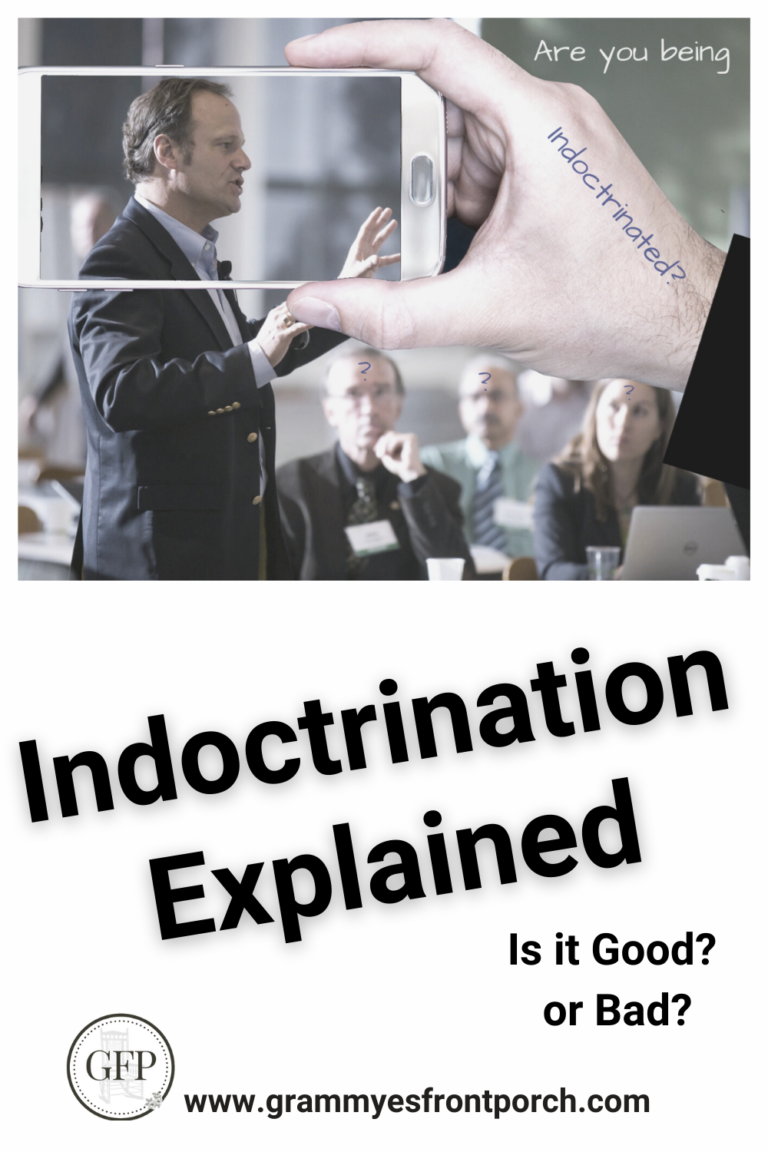
Is Indoctrination Good or Bad?
The question of the day. It’s up to 9 million searches on Google.
And it’s a hot topic. People are zealous.
Many are passionately teaching that indoctrination is wrong.
I respect that.
Because so many have a yearning (and a talent they can use) to teach what they think is true. I believe they should be encouraged to share what they know, and should have a platform to do it.
And I’ll tell you a secret: Indoctrinate means “to teach.”
Oh, people have newer more “developed” definitions. Like teaching “without questions” or “without critical thinking.” Or even “brainwashing.”
And make no mistake, those things get done. But those practices aren’t automatically a part of indoctrination.
Indoctrination has a bad name because someone decided to give it a bad name. And they are on a mission to convince you that it’s bad.
But it really means teaching. Especially teaching about ideas, or concepts, or practices.
So is indoctrination good? Or bad? Because that’s the question.
I think you’re tracking.
So I’m about to uncover a big ugly truth.
Read this carefully: If you are accepting the indoctrination into the idea that indoctrination is bad, I think we have a double negatory going on, friends. Or at the very least a paradox.
Those who are teaching that indoctrination is bad are really wanting you to accept their idea. And you can. Should you?
Is their idea true? And do they have the right to teach it to you? Because they may be indoctrinating you.
See what’s happening?
Hey, I have ideas, too. And I teach them.
My awful truth: I indoctrinate. All the time.
- I teach that busy highways are not good play places for children.
- I teach that the outdoor grill is hot when it’s being used.
- I teach that automobiles are driven by licensed drivers.
- I have taught policy and procedures and compliance in the workplace.
- I have taught how to count to twenty.
And lots more.
And those “re-definers” of indoctrination would be correct — What I teach is not up for debate.
These are my beliefs, and I’m not interested in changing my mind.
I don’t really cover other points of view or allow a lot of disagreement. In other words, these aren’t “fluid” truths. They are absolute.
- The grill really is hot,
- we really do have a strict confidentiality policy in our office,
- and nineteen really comes before twenty.
These are truths we don’t need to “seek” because they have already been “found” and even proven.
I’m indoctrinating people into idea systems that I expect them to submit to, and I think I’m right. As my mama would say, “Period.”
Is Indoctrination Wrong?
So am I wrong? To accept and follow these truths, and teach them to others?
Plenty of people are doing that every day. Right in front of you.
Am I telling the truth? You decide. Is anyone telling the truth? It sure sounds like they are. Or they aren’t.
And there’s something else you should know.
I’ll tell you in a minute, but it’s ugly. It tastes terrible. It will anger you, hurt your feelings, and probably start a fight. Because it’s about you.
First, though, Who is telling the truth?

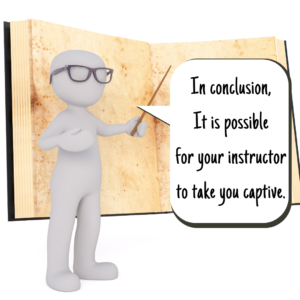
Who Is Telling The Truth?
Isn’t that the big question? Television, Facebook, YouTube, Google, and so on. As soon as you have a question, a face will appear and tell you how to think about it.
Search for an answer, and professional people who are attractive and credible will tell you what to think.
They are skilled: They make you like them, they make you feel good, they appeal to your need, and they give you an answer that makes sense to you. They are knowledgeable and well spoken. It’s a skill, and it works.
In fact, you like them. A lot. Enough to find them again, and listen more.
At first, it’s just a rhythm: Questions and answers.
But then the information demand-and-supply starts to fit nicely. It creates a pleasant “click” that fills the void.
They give you what you think you need. The knowledge you asked for, the knowledge they want you to have.
You know what you call this? Indoctrination.
Yep. And I’m getting to that awful thing I mentioned.
This is the ugly part I warned you about:
You’re choosing your indoctrination.
As they say, “It takes two to tango.”
(I toldja it was gonna hurt your feelings.)
So wait a second. Indoctrination has always seemed like an intellectual crime with a vulnerable victim.
How does the victim get the blame?
Well, lets take one more quick look at the definition before you see the 3 choices that put you squarely in the cross-hairs of indoctrination.
Choosing Indoctrination?
There’s a lot of buzz about the word “indoctrinate.” And the evolution of its definition is important.
By its structure, it simply means “to teach.” Over time it was used to describe teaching a set of ideas. And eventually someone added “without question” to that meaning.
( 😦 Changing the dictionary?? When did that get to be a thing? Back in my day, it was a whole lot harder to do that in the dusty old paper dictionary. Just sayin.)
Anyway, here’s how you’ll get to the part about your own participation:
Whichever stage of the word you choose to use, the word still describes the action of teaching, which assumes 3 things: a teacher, a truth, and a trainee.
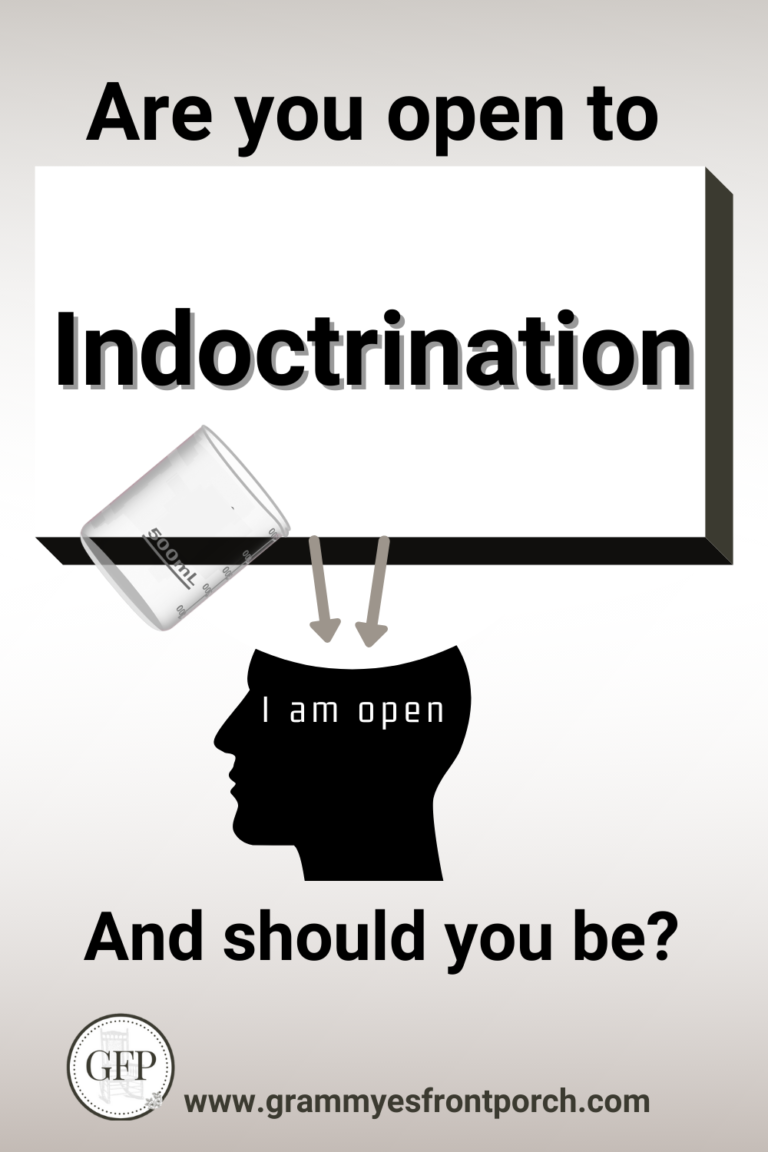
Now that I’ve accused you of choosing your indoctrination, let’s see how it’s done.
The first choice is to participate as the trainee. That’s you. That was easy. Then there are only two choices left for you to make. The truth and the teacher.
I know you’re tracking with me here.
The second choice should be this: the real, absolute truth. So that’s the next choice. Pretty easy.
The third choice — this is where it can all go south. The teacher.
How will you find your teachers? And how will you recognize whether they are teaching truth?
Isn’t that the question? Where is TRUTH marketed?


How do we set ourselves up for “good” indoctrination?
We set ourselves up acknowledging the 3 elements of the action of teaching:
Accept that you are choosing
- to be taught (trainee),
- to learn truth,
- and to be equipped to select your teacher.
Are we truly equipped? To select our teacher?
That’s really the heart of the issue.
All these questions:
- What are the credentials?
- What credentials are valid?
- What organizations can be trusted?
- Were reliable methods used to create the message?
Maybe we start with the most trustworthy thing we know, and work our way out. That way, everything would be measured against that.
The Most True Thing.
Now I’ve got you again. Making you nervous, right? But just hear me out.
The Bible, creation, salvation, sin. Without this foundation, things may seem right but aren’t.
The Bible warns us:
“The way of fools seems right to them, but the wise listen to advice.” (Prov 12:15)
So is there a hard dividing line between “know” and “seems?” Because I often struggle with this.
Maybe I’ll mention that again in a minute.
But first, we need to talk about truth.
Good Indoctrination –Worthy Teachers
Are we able to discern truth? To be aware of false teaching? To spot doctrinal error? That’s a lot of responsibility.
Suppose we prayed for discernment, and studied our Bible, and prayed for more knowledge. Suppose we worshipped in community, and wrestled with the questions together. Suppose we looked at what the Scripture directed us to do, in seeking truth and following teachers of the Bible.
That’s a system that has worked for a long time. I don’t think we could really embrace truth apart from this.
In fact, there’s a really concise direction for foundational truth in Second Peter, beautifully expressed this way:
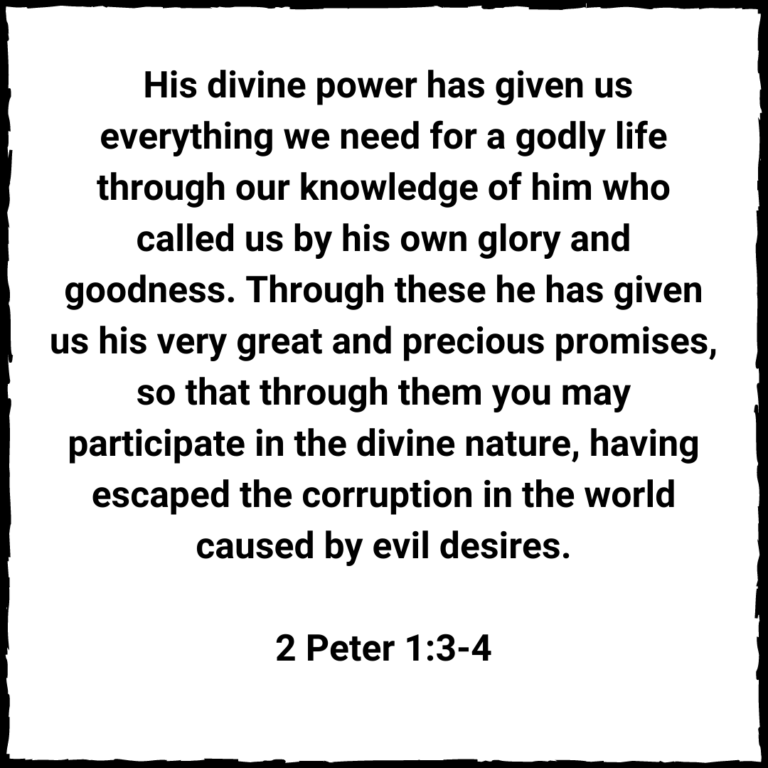
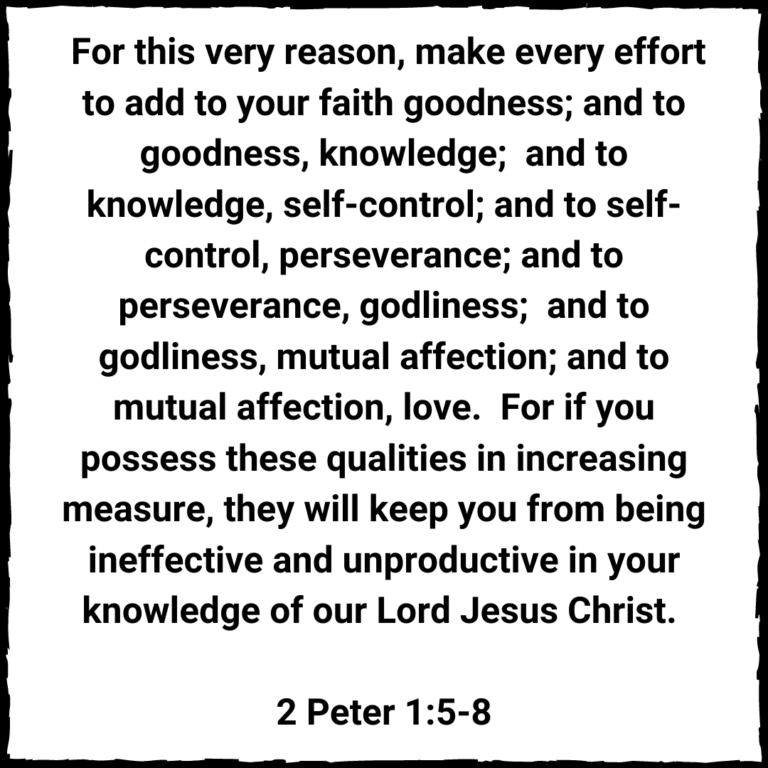
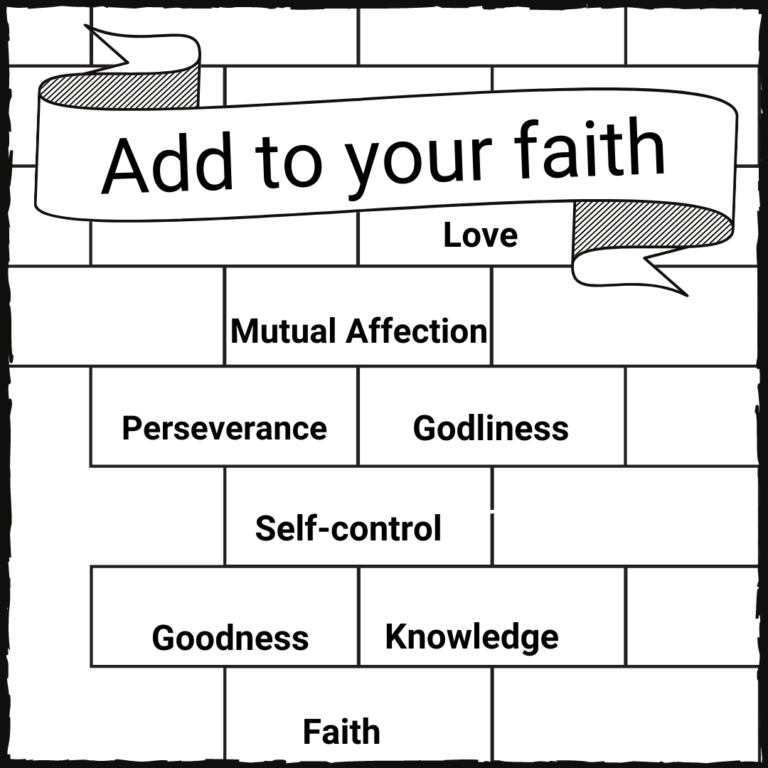
Choosing Your Indoctrination
Here’s the cold hard fact: You’re choosing your indoctrination.
We can unite in truth as believers, and choose to be indoctrinated into goodness and light.
Or, we can choose to be indoctrinated into darkness, by people who insist they are not indoctrinating us.
But make no mistake: You are choosing.
All around us, indoctrination is offered.
Look, listen, and admit: the vocabulary these days is incredibly intense: Woke, Narrative, Left, Right, Pandemic, Critical Race Theory, Privilege, Marxism, Cancel, Conspiracy, and so on.
Things that invite anger, hatred, and division.
We are all learning just how powerful language can be in a culture that continues to divide and mutate constantly.
And I’m gonna say something really sad here:
Not only are we finding ourselves trying to catch up to the next big wave of activism, we are seeing the crumbling of this very nation right before our eyes.
With all this going on, we can feel hopeless. Watching the edges disintegrate, we keep moving toward the center, filled with dread, overwhelmed.
Our own self-development can be neglected as we try to find ways to discuss the events around us. Which is really hard.
We have to be intentional.
In addition to managing our own personal indoctrination, we need to maintain community with others, bringing salt and light to the world that fears the future.
Spinning those plates is hard. Exhausting. So many important issues are before us constantly, and we can easily lose sight of the main thing.
We need to proclaim truth to the lost people we encounter.
We need to say it, and live it. We need to interact with grace and restraint. It’s hard.
And a big important thing: Proclaiming truth cannot be done in the absence of prayer.
In 1 Timothy 2:1-4, Paul tells Timothy this:
I urge, then, first of all, that petitions, prayers, intercession and thanksgiving be made for all people — for kings and all those in authority, that we may live peaceful and quiet lives in all godliness and holiness. This is good, and pleases God our Savior who wants all people to be saved and to come to a knowledge of the truth.
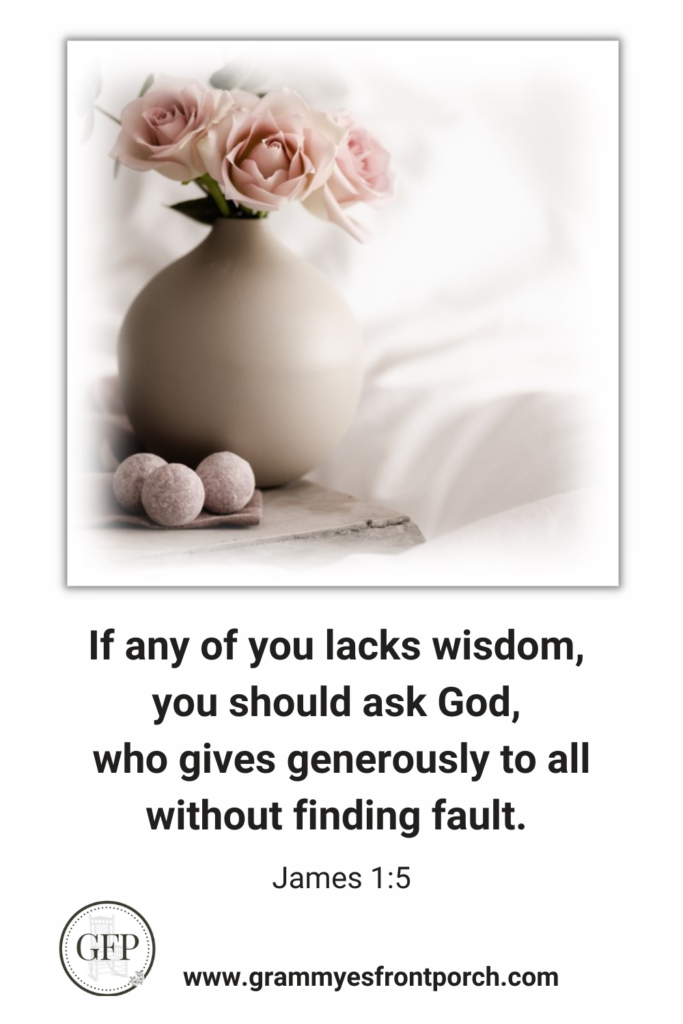
Praying. Living godly, holy peaceful quiet lives.
- We begin here, praying for ourselves, our authorities, and the people around us.
- We believers study together and learn truth, sharing as we go. Knowledge.
- And we pray with even more knowledge, growing in faith and wisdom.
And in doing this we come face-to-face with challenges that are much bigger than the day-to-day struggles we voice to our companions.
The challenge?
We are relied on to make wise choices.
- Wise choices about plans and actions.
- Wise choices about changes in direction.
- Wise choices when the answer seems elusive.
Maybe we are busy, or confused, or frustrated.
Maybe we aren’t communicating effectively.
Maybe we’ve hit a dead end.
Maybe we’ve even gotten a little misguided.
Maybe we lacked awareness of indoctrination.
Maybe we’ve chosen teachers, then heard bitter criticism of those very teachers.
Maybe we’ve had to make difficult decisions, difficult changes.
That’s understandable. There are a lot of voices out there. Who do you have to help you get to the good stuff? The good learning, the trustworthy voices, the solid teaching?
How long does it take to separate “seems” from “know?”

3 Answers to How Can Christians Repair Our Country
The answers are easy. We said them a minute ago: Pray, Know, Pray.
The execution of those answers seems to be where we fail. Because we fail to pray, we fail to know. And because we fail to know, we fail to pray.
The collective wisdom in our community and our nation is vital to our survival.
How is collective wisdom going to be attained? Starting on a good foundation.
INDOCTRINATION: What Do We Do Now?
What’s the purpose here?
To examine our positions and our knowledge, and double-check our thought leaders. To examine all aspects of indoctrination and participate only with the goal of good growth in mind.
That’s the purpose.
If you feel like I just pulled you into the crazy glass-and-mirrors house at the fair, I apologize. If you want to get out, you have to look at where you’re standing. Look closely at the foundation, the floor. There you’ll see the openings in the illusions, the way out. You can’t keep looking at the glass panels that seem like the answer.
Thinking differently.
That’s the hard thing. Thinking differently. Calming the frustration and trying for a way to hear truth and proclaim truth.
Sometimes understanding is simply moving to another chair to see the problem differently. It’s how you reach an understanding with another person. Taking the time to see how that person feels.
It’s how you solve a difficult dilemma. It’s how you can see how to use a skill effectively. You examine it from another angle.
And it’s a way to see indoctrination as what it really is: Teaching. Choose your teaching.
Choose your indoctrination.
Pray. Know. Pray.
Understand that Jesus is the way, the truth, and the life. And that Satan comes to steal, kill, and destroy.
 You still here, boo? Awesome.
You still here, boo? Awesome.
When you and I are together, it’s about the hard things in life. The struggles, the doubts, the disappointments. And that’s why we’re here today, checking ourselves, sorting out how we grow and learn without getting off track.
Has it helped to take a hard look at what you’re chasing? To acknowledge the importance of choosing your indoctrination?
Today, I hope we refreshed your heart with a brighter and closer look at what you already know. That’s right, a new look.
Because that’s another area we fall short — forgetting to consider a new way to think of things.
Some Incredibly Helpful Books
If you’re serious about getting ahead in your faith, wisdom, and prayer life, I want to introduce two books to you today.
These books will provide a solid perspective from a Biblical worldview that I trust.
They are written by men who have spoken truth into my life. Men who indoctrinate believers every day. Men who teach Scripture and lead people to the Savior.
But I can’t choose your indoctrination. Only you can. I’m just sharing what I’ve chosen, knowing that many others will make different choices.
(By the way, if you’re expecting books by white guys, you’ll be surprised that two of them aren’t.)
Voddie Baucham is a black man who tells every story and concept beautifully — His heritage, his faith, and truth. He is an amazing writer who will comfort and challenge you. In one story you’re on a bus with a loaf of bread and some fried chicken. A chapter later he is describing his educational background with “references to philosophical ideas from the perspective of cultural apologetics.” He hauls the false teachers by the scruff of the neck into the light of honest scrutiny. If you’d like to get a correct perspective on many of the issues we face today, this will be a tremendous help.
Michael Youssef was born an Egyptian. He then was an Australian and now is an American who leads an “evangelical congregation, declaring the whole counsel of God, as evidenced through our Statement of Faith. Nothing we do is as important as following Jesus’ words in Matthew 24:14, ‘And this Gospel of the Kingdom will be preached in the whole world as a testimony to all nations.'” Reading this book clearly outlines the road to today, and compels you to “report for duty and make a difference in this present crisis.”
Michael Youssef, in Hope for This Present Crisis:
“The message of the kingdom of God won’t win any popularity contests. But it is the truth, and we need the courage to defend God’s truth boldly and without compromise. We must stop chasing after the approval of this fallen world. Jesus never compromised the truth to win people over.”
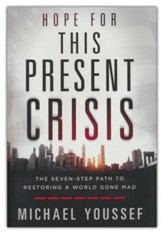
Voddie Baucham in Fault Lines:
“I wrote this book because I love God more than life, the truth more than others’ opinion of me, and the Bride of Christ more than my platform. My heart is broken as I watch movements and ideologies against which I have fought and warned for decades become entrenched as the highest and most respected levels of evangelicalism. I want this book to be a clarion call.”
Owen Strachan, author of Christianity and Wokeness:
Editorial review: As the ideology of wokeness spreads like gangrene throughout many churches, we need men who will stand and speak the truth in a way that is able to win minds and hearts. Owen Strachan delivers on this great need in his latest book. With the mind of a scholar, Owen defines wokeness with great care and addresses the serious nature of its worldly ideology.
Trainee, Truth, Teacher.
When you get still and listen, be sure the truth is being taught.
When you’re ready to share truth with someone else, remember that they feel just like we do sometimes — pulled into the crazy glass-and-mirrors house at the fair.
Isn’t our job to help them see the way to reveal the truth?
I pray that the abundant refreshment of truth rains down hard on us all.
Let me ask you this: Does Scripture ever just “land” on you just right? Something you were hungry for suddenly satisfied you? When that happens, it reminds you that there’s so much more for us in the Bible.
Abundant refreshment.
Sometime check out this amazing memory method for storing up Scripture. The more I talk with others, the more I know memorizing Scripture is not just an extra — it’s a necessity.
Go for the abundant refreshment.
And if it seems difficult, seek a teacher who embraces truth to help you.
INDOCTRINATION…
This has been such a release, writing this series. Finding a place to lay down all the troubling thoughts that keep coming up. Also to recognize the trends and the lures that call us away from the journey.
Series, #1: Is Indoctrination Good Or Bad? (What you read today)
Series #2: Have You Been Indoctrinated?
Series #3: The Looming Danger of Indoctrination.
Series #4: The End Of The Matter.


Pray, Know, Pray.
James 1:5 says this:
If any of you lacks wisdom, you should ask God, who gives generously to all without finding fault.
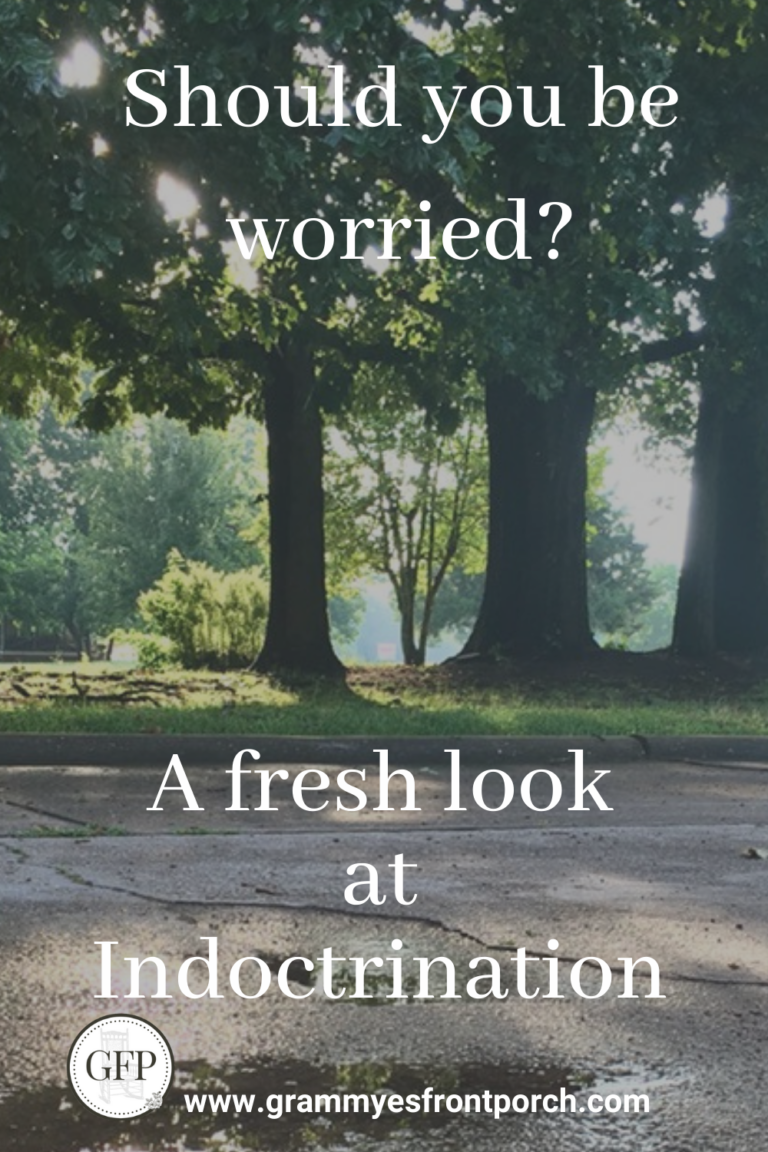
Thank you. For reading. I mean it.
If there was one thing I would want you to do, it would be to buy one of the books.
When GrandDaddy finished Hope For This Present Crisis he said it should be required reading for all of us. It was enlightening, inspiring, challenging, and comforting. And those are the things I’d want to shower you with today.
This post may contain affiliate links. That’s a good thing. It means if you purchase a product I’ve highlighted, the seller may compensate me for that promotion. I love to share products that are a good value and make life easier. Those little commissions may add up, and can help to offset the cost of running the blog. Or maybe even create a little income. Click here to learn more about this.
Thank you for visiting! At GFP company is always welcome!




Are you on Pinterest? That is a crazy fun place! You can find so many helpful things. Take a look at what I’ve saved for you! A lot of things that never make it to the blog. Here are my Pinterest pins, and I have lots of categories/boards if you’re looking for something specific.
-Grammye
New here?
I’m Grammye, and I’m collecting and sharing ideas that can help you embrace the life you have.
When things are difficult, come here to refresh and relax. We’ll have coffee and talk.
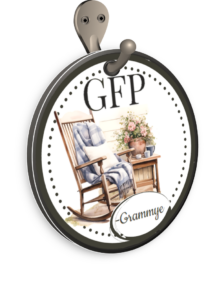
You’re invited
to the neighborhood of GFP.
Accept by signing up
and I’ll send you a letter right away.
Subscribing to GFP is just like getting a magazine. Except it’s free! You won’t be asked for any payment information.
So say yes, then check your junk/spam mail in case the confirmation gets lost on the way!

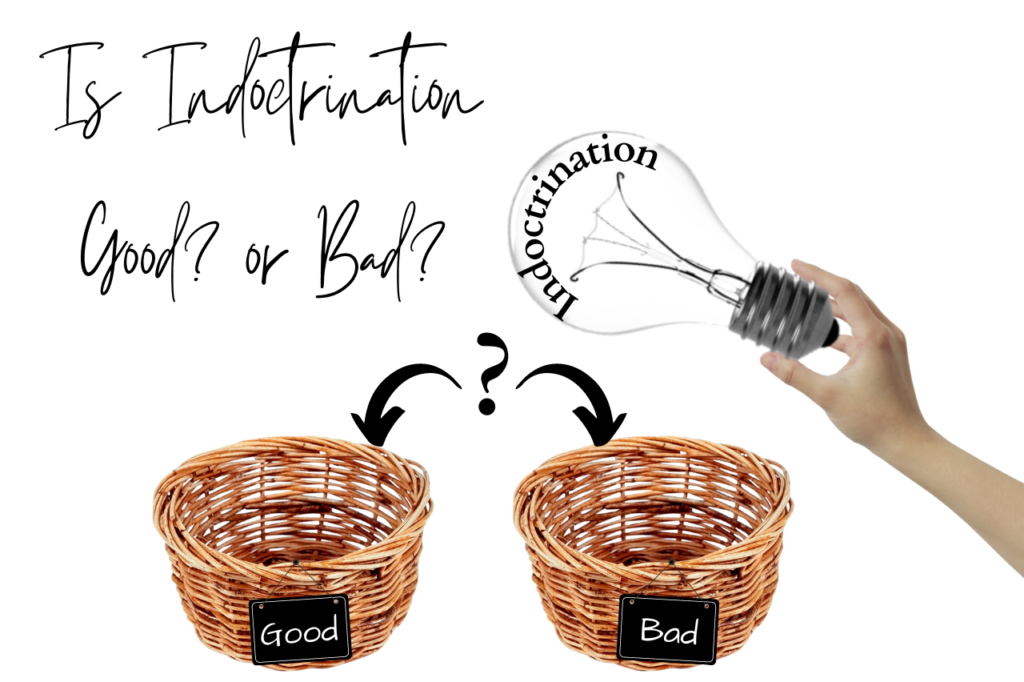
 You still here, boo? Awesome.
You still here, boo? Awesome. 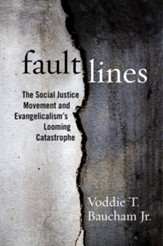
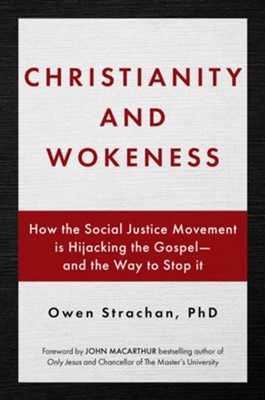

Thank you for writing this! I’m looking forward to reading the books you mentioned, too!
Elsie, I am so glad you stopped by, and thank you for your kind words. The whole reason this post even got written is that I was constantly spinning on the issues and realized what was wrong. People, even smart and respected people, were drawing me in to discussions that didn’t get anywhere. I was poorly equipped to participate. The 7 steps in the book, Hope For This Present Crisis, begin with “Remember the truth.” I’m determined to be more loving and more truthful. I hope you enjoy it.
Pray Know Pray. This was really good to read. Thank you for saying the hard things and making us think. “If you want to get out, you have to look at where you’re standing. Look closely at the foundation, the floor. There you’ll see the openings in the illusions, the way out. You can’t keep looking at the glass panels that seem like the answer.” Good stuff!
Julie, thank you. There’s a little more fear these days at the word “seems” because it sounds so mild and earnest, like a helpful friend. And it’s a poor substitute for knowledge. I pray that God fills me with strength to seek truth, to increase my knowledge of Him. And also that He will do that for those around me. Because: If we don’t get that right, nothing else counts at all. Always glad to see you at the porch.